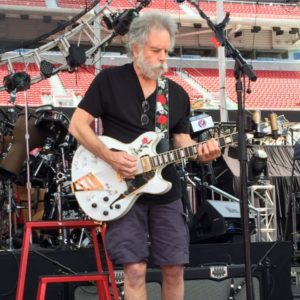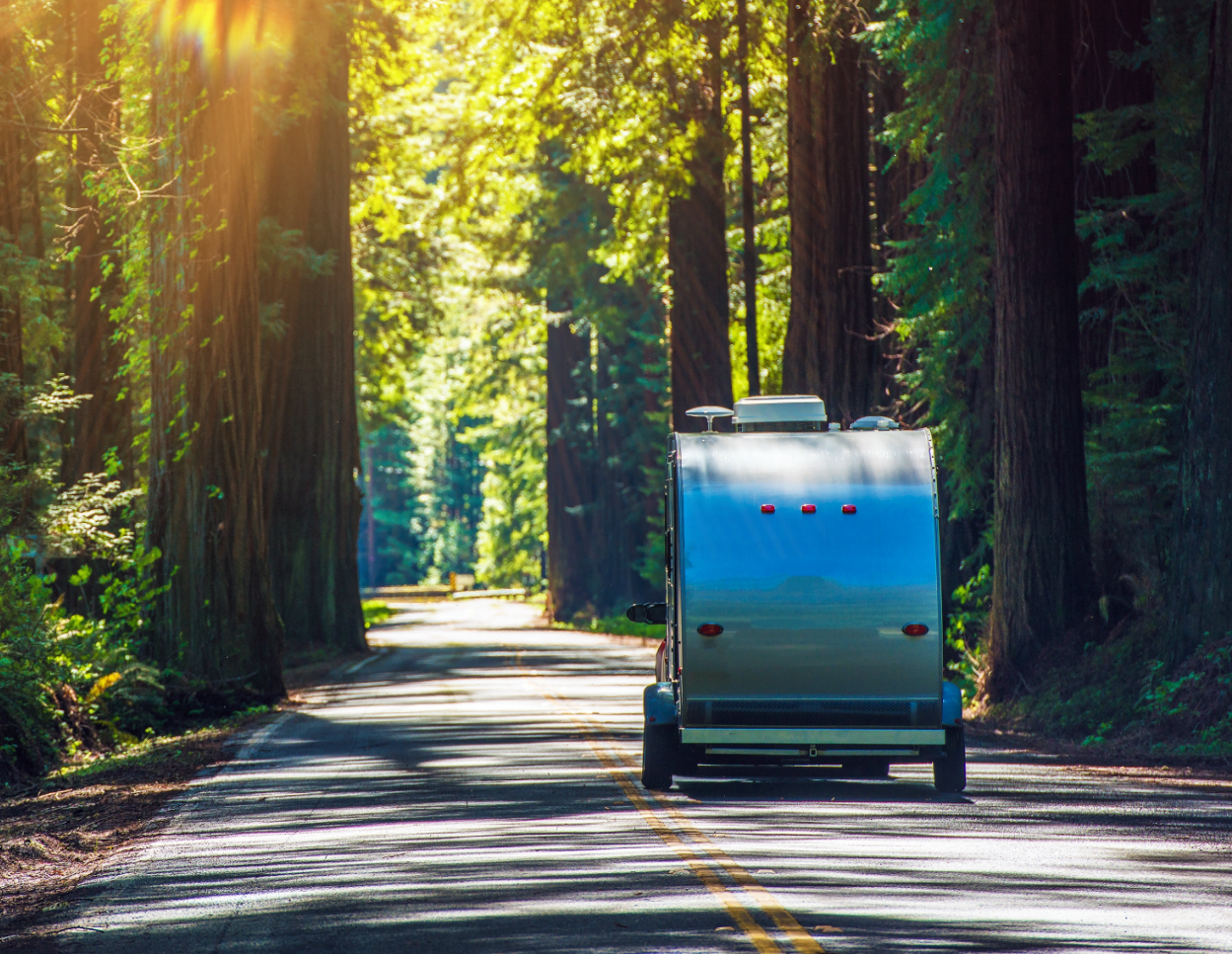
Music festivals, concerts, camping folk and RVers have an undeniably friendly, good-karma vibe. After all, they don’t call the RV group “Good Sam Club” by happenstance. But producers and activists are looking to turn vibes into action. From organizations like HeadCount to community causes like Habitat for Humanity, organizers are determined to make it easy to transform people into supporters.
 Giving back can be as simple as hitting the road. RV Care-A-Vanners works with Habitat for Humanity to steer help to the housing organization’s projects. With its members traveling the country in their RVs building homes, RV C-A-Vs donate time and treasure (money) and advocating for the cause. As they say, “If the open road calls to you, the RV Care-A-Vanners are for you.”
Giving back can be as simple as hitting the road. RV Care-A-Vanners works with Habitat for Humanity to steer help to the housing organization’s projects. With its members traveling the country in their RVs building homes, RV C-A-Vs donate time and treasure (money) and advocating for the cause. As they say, “If the open road calls to you, the RV Care-A-Vanners are for you.”
Volunteering has long been a staple on music festival scene. Give some time, get passes to the event. In a formal sense, the “Participation Row” concept, which gives local and national charities a home on the festival grounds, was born at the first Lockn’ Festival in 2013.
 Created and organized by HeadCount, Participation Row made headlines at the Grateful Dead Fare Thee Well shows in Santa Clara, California, and Chicago, Illinois. To celebrate the Dead’s 50-year run and tie to charitable causes, the band’s core four remaining members invited 16 non-profits to form a Participation Row area at those anniversary concerts. Among them were Grateful Dead-affiliated charities The Rex Foundation, The Seva Foundation and The Rainforest Action Network, as well as food drive Conscious Alliance, REVERB, the Owsley Stanley Foundation, Rock the Earth, and NORML, Surfrider, Hidden Wings, the Multidisciplinary Association for Psychedelic Studies, Oxfam, Represent.US, and Unbroken Chain.
Created and organized by HeadCount, Participation Row made headlines at the Grateful Dead Fare Thee Well shows in Santa Clara, California, and Chicago, Illinois. To celebrate the Dead’s 50-year run and tie to charitable causes, the band’s core four remaining members invited 16 non-profits to form a Participation Row area at those anniversary concerts. Among them were Grateful Dead-affiliated charities The Rex Foundation, The Seva Foundation and The Rainforest Action Network, as well as food drive Conscious Alliance, REVERB, the Owsley Stanley Foundation, Rock the Earth, and NORML, Surfrider, Hidden Wings, the Multidisciplinary Association for Psychedelic Studies, Oxfam, Represent.US, and Unbroken Chain.
Today, Participation Rows are as much a fixture on the festival scene as merch row. The upcoming Okeechobee Music Festival in Central Florida welcomes area charities, family service groups, arts organizations, and cultural programs to showcase their causes and solicit that time or treasure from festival goers, says Soundslinger CEO Kevin Collinsworth.
“We doubled down to focus on local non-profits,” he says. “We’re giving kids an opportunity to understand what’s out there in the local community.”
In some ways, promoters use charitable outreach to balance and heighten the impact festivals can have on what often are small towns. Lockn’ partners with The Conscious Alliance with a simple offer: Bring 20 canned goods to the festival, which then will be distributed to the Nelson County, Virginia, food pantry, and get a festival poster.
Also a fixture is HeadCount. Closely aligned with the Lockn’s producers, the organization drives voter activation and registration using “the power of music to engage Americans in our democracy,” says Aaron Ghitelman, the organization’s communications director and veteran field rep.
You know HeadCount from Summercamp, 420, Bonnaroo, Lockn’, and Okeechobee. You’ve seen their people, clipboards in hand, encouraging voter registration. They hustle – and it shows. In 2016, the group attended 1,500 event nationwide and registered 160,000 voters. In all, Ghitelman says their network of 23,000 volunteers have tallied 500,000 voter registrations.
They’re about more than voter reg. At the Fare Thee Well shows in 2015, HeadCount and organizers auctioned off for $526,000 a D’Angelico guitar signed by the core four and played by Bob Weir. In all, they raised $1 million for Grateful Dead family non-profits alone.
Bands also have their own missions. Funk band Lettuce is partnering with HeadCount and social impact consultants level to organize a #LettuceParticipate activism area featuring the American Civil Liberties Union (ACLU) and WhyHunger. Lettuce is donating $1 from every ticket sold to make that possible.
Among the top rock philanthropists are U2 (no surprise there), Pearl Jam, Dave Navarro, Sheryl Crow (who’ll be at this year’s Lockn’), and Dave Matthews Band. Since 1997, Phish’s Waterwheel Foundation has supported Vermont-based and other charities.
 Some people dig giving and need no nudge. Others could use some encouraging. Talk about making giving easy, Aaron Stein believes the Live Music Challenge has the answer: Just see music.
Some people dig giving and need no nudge. Others could use some encouraging. Talk about making giving easy, Aaron Stein believes the Live Music Challenge has the answer: Just see music.
A founder of the Freaks Action Network, the veteran producers of various live music shows around New York City, Stein realized that over 15 years, he had built a pretty solid community. So why not put them into action?
Two years ago at the cusp of the presidential election, he began thinking about “what we can do to make our world a better place,” he says. His answer, Live Music Challenge. It’s akin to a charity fitness event, where participants get sponsors to pledge a certain amount for every mile they may run or walk. Only with LMC, people give for every concert or show they see.
“The idea was every time I go see a concert,” he says, “I’ll make a little donation.”
It’s an honor system, and Stein, along with founders Andy Hollander and Graig Adler, handle no money. You pledge and donate to whatever cause you wish X dollars per show you see. Then, you report the figure back to Live Music Challenge. They started with about 25 people; by the end of 2017, people reported $12,000 in donations.
The halo effect is undeniable. Voices are amplified. Causes are celebrated. Missions are activated. And time and treasure go to causes in need.
“You start realizing if you can convince 10 or 20 times as many people give, you can get orders of magnitude,” Stein says. “It’s kinda fun. It feels good. It’s that good feeling you get when you see a good show. Why can’t I just take a little of that and share it? The currency is that good feeling.”
